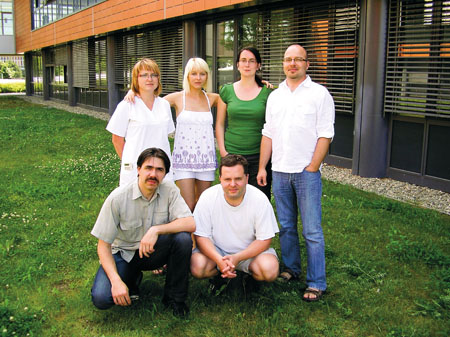My name is Dmitry German and I came from Barnaul, which is the central city of Altai province of Russia. My surname clearly indicates my roots, and indeed my father’s ancestors were those of many Germans who moved to Russian Empire in search of better life in the second half of XVIII century from Germany after Sophie Auguste Friederike von Anhalt-Zerbst-Dornburg got married with Peter III and soon took the Russian throne and became Ekaterina II (the Great). Initially settled in Low Volga region, “Russian Germans” undergone some mass transmigrations in the first half of XX century and finally considerable part of them were resettled in Altai region. My mother’s ancestors are Russians and Ukraines evacuated from European part of USSR during the nazis attack to that area. So I combine quite different lines which is quite typical for Russia and the whole former USSR.
I got my biological education in Altai State University (Barnaul) in 1990ths and also got PhD degree there in 2002. The basic field of knowledge of my specialization is taxonomy and phylogeny of the crucifer plants also known as the mustard family. My current chief, Dr. Martin A. Lysak, is also specialized on studying this group of plants but at the deeper level of molecules and chromosomes. We met for the first time in Vienna during the XVII International Botanical Congress (July 2005) where Martin had one of the most impressive reports in our section. It became evident that it could be prospective and mutually beneficial to combine our knowledge, methods and efforts in exploration of evolution of this interesting and economically important family (where cabbage, mustard, reddish, horse reddish, wasabi, etc. belong). Therefore, when the Masaryk University opened a competition for the position of a visiting scientist, we decided to use this opportunity.What I found here – this giant (and still growing!) and very modern campus full of excellently equipped laboratories – really impressed me much. From the first day of my stay in the department headed by Prof. Jiri Fajkus, I felt the warm and friendly atmosphere which is quite important factor for productive and successful work. As can be easily imagined, I had many various questions especially in the beginning and there was no case when it was not quickly and properly questioned. Thanks to this good atmosphere, I can communicate with some members of the department on a broader line of topics rather than only scientific staff, and we became friends during these months (almost a year) while I am here. Regarding scientific work, it is in a good progress and currently includes several ongoing subprojects. The benefit of my position is that I can not only apply my knowledge and skills but also study some techniques which are new for me.

For the biologists of the whole word Brno is important city because it is a place where genetics – currently one of the most actively developing branches of science – was born. For me, the Mendel’s … was one of the very first targets for visiting which I made with a great pleasure.
Brno is a city with strong cultural traditions connected with the names of Korngold, Yanachek, and others, and I hope to use a chance to get more acquainted with this aspect of social life during my stay.
CZECH VERSION/ČESKÁ VERZE